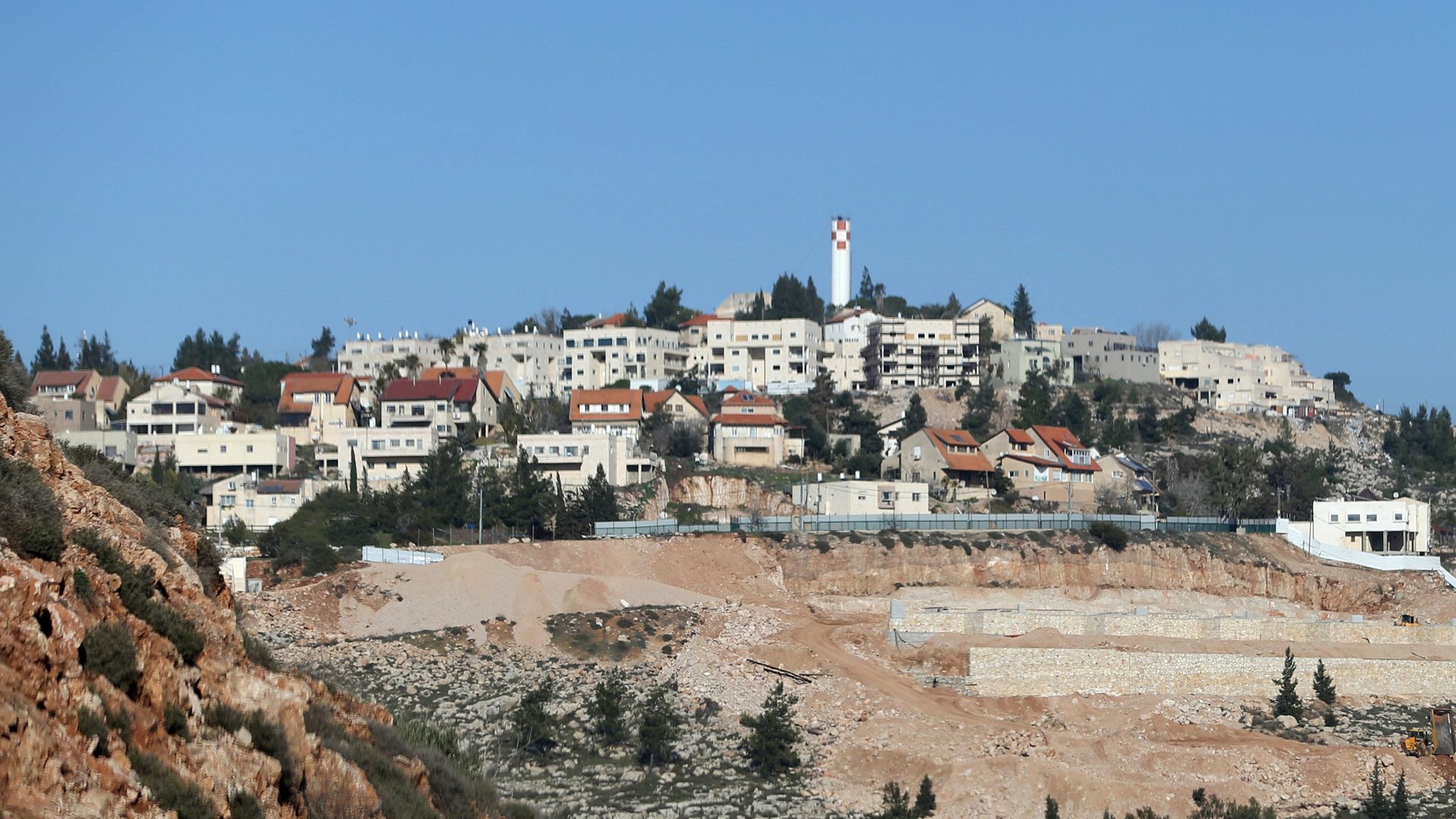Airbnb has removed its controversial West Bank listings, and Israel is furious
The West Bank is a territory roughly the size of Delaware that stretches between Israel and Jordan. Since the 1967 Six-Day War, it has been occupied by Israel; in the decades since, around 500,000 Israelis have moved in, many of them in settlements widely considered to be illegal under international law. (Close to 3 million Palestinians also call the area home.)


The West Bank is a territory roughly the size of Delaware that stretches between Israel and Jordan. Since the 1967 Six-Day War, it has been occupied by Israel; in the decades since, around 500,000 Israelis have moved in, many of them in settlements widely considered to be illegal under international law. (Close to 3 million Palestinians also call the area home.)
It is also host to some 200 Airbnb listings, some in settlements which even Israeli authorities question the legality of. But these hot tubs and open-plan kitchens won’t be on the market for much longer. Yesterday (Nov. 20), the online rental marketplace released a statement saying it would be removing them from the site: “We concluded that we should remove listings in Israeli settlements in the West Bank that are at the core of the dispute between Israelis and Palestinians.”
Unsurprisingly, Israel is furious. Tourism minister Yariv Levin decried it as a “discriminatory decision,” and “a disgraceful surrender” to the pressure of pro-Palestinian and human rights organizations alike. His office will now attempt to limit the company’s activity elsewhere in the country, the New York Times reports.
The country’s minister of strategic affairs, Gilad Erdan, questioned the legality of the decision. Some 25 states—including California, where Airbnb is based—have legislation prohibiting boycotting Israeli goods and services, which he believes could inviolate the company’s decision. Moreover, Airbnb does not ban listings in other contentious areas, such as Moroccan-occupied Western Sahara or Turkish-occupied Cyprus, as one conservative legal scholar noted. “So it is only Jewish properties in the Jewish homeland that are banned,” Eugene Kontorovich told the New York Times. “Airbnb’s approach of singling out Jews from all the disputes in the world will put it at odds with US state [anti-boycott] laws and principles of discrimination.”
Settlers now face the option of introducing legal challenges against the US firm, similar to those brought against two women from New Zealand whose open letter led to the pop star Lorde cancelling her Tel Aviv concert. If they do, tourist minister Levin said, they can expect the full backing and support of Israeli authorities.
But organizations outside of Israel, such as Human Rights Watch and Amnesty International, have lauded the decision. In an extensive report released today (Nov. 20), Human Rights Watch found that the listings helped contribute to the settlements becoming more profitable and sustainable. It noted, too, that Israeli hosts would be obliged to discriminate against any prospective Palestinian visitors, who are not allowed to enter settlements except as laborers bearing special permits: “Israelis and foreigners may pay to stay on the property, but Palestinians may not.” Airbnb, for its part, attempted to frame it in apolitical terms. “We are most certainly not the experts when it comes to the historical disputes in this region,” the news release explained. “Our team has wrestled with this issue and we have struggled to come up with the right approach.”
Though the overall decision was met positively by many Palestinian organizations, one leader, from the Palestine Liberation Organization, called for a more unambiguous stance. In a statement, the group’s secretary general, Saeb Erekat, said that though it was “an initial, positive step,” the onus was now on Airbnb to state clearly that “Israeli settlements in the West Bank, including occupied East Jerusalem, are illegal and constitute war crimes.”